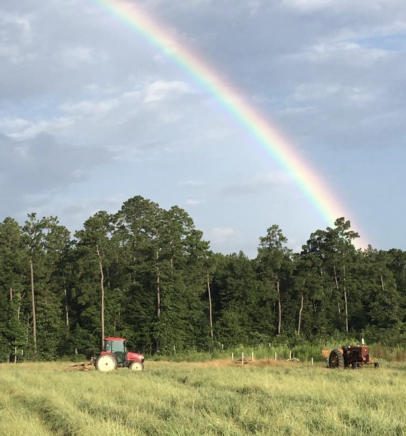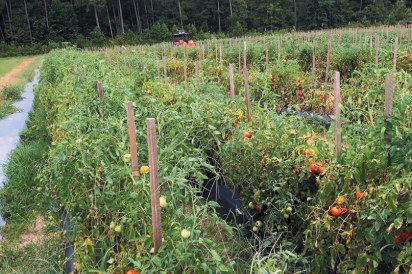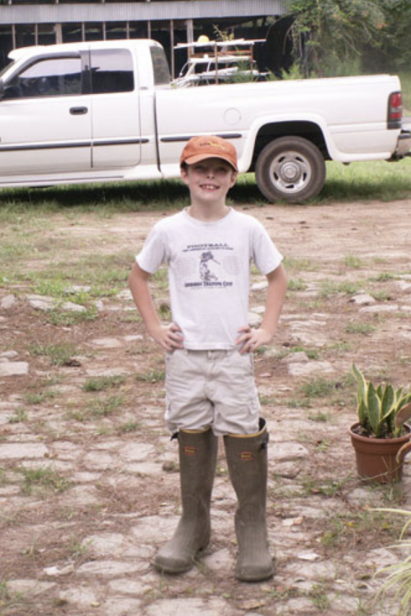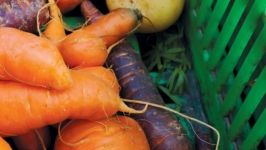Farm and Forest to...Garbage Dump? Wood Duck Farm Fights Back
Community rallies against a planned landfill adjacent to Sam Houston National Forest
It is no secret that the life of a farmer is not for the faint of heart. Sweltering heat, hard freezes, flooding rains, invasive insects, long hours, unsteady profits and unpredictable harvests plague these essential workers. Add a worldwide pandemic, and things become even more difficult.
Van Weldon, owner of Wood Duck Farm, a 165-acre farm in Cleveland, Texas, knows all the harsh realities of working the land after decades in the business. What he never expected, though, is just how much more difficult farming life could be until he discovered a landfill might become his neighbor.
“I was in denial when I found out about it. It was surreal,” Weldon says. “I like to think it is really pretty where I live. We have a national forest on the side, then there’s a pine timber forest, and my farm is carved out in the middle of those two boundaries. You can escape out here. Our biggest problems are racoons and crows. That’s not the case anymore.”
Wood Duck Farm, which is about an hour north of Houston, has been a staple as a farmers market vendor and CSA provider at numerous locations in and around Houston. “We’re fortunate we’ve got a nice following of people at the market,” Weldon says. “I had a guy come up to me last year and say, “Why do you have a line? You’re selling the same things everybody else is,’ and I told him, ‘We’re either slow or people like what we’re doing over here.’”
According to the proposed landfill’s project documents, the site— called Peach Creek Environmental Park—would span 636 acres in southern San Jacinto County and would provide waste disposal for residences, businesses and industries in the county and surrounding Texas counties. Phase 1 of the project would be 115 acres with a potential second phase to follow. If the project does come to fruition, the landfill would bring in about 1,300 tons of waste a day, or nearly 372,000 tons per year.
Weldon is concerned about several factors related to a landfill, such as potential runoff from floodplains, well-water contamination, air quality control and the steady train of disposal trucks driving down every day. In fact, Weldon estimates 250—500 truckloads every day on an access road that would be adjacent to where his customers currently pick berries.
Weldon isn’t alone in his concerns.
Dana Moody and her family bought a 24.5-acre property in San Jacinto County to escape Houston and embrace life on the land. As a mother of five, Moody has always put the needs of her family first. So when her son was diagnosed with a brain tumor years ago and his doctors told the family to make sure he would “live organic, eat healthy, drink a lot of water and stay away from environmental pollutants,” the family found a new home away from the hustle and bustle of the city. The proposed landfill is deeply concerning for her family.
“When I found out about the potential landfill in October 2020, my heart just sank,” she says. “I called my county commissioner and was, like, ‘Can you explain this?’ Looking at the application, I noticed it was filed in August 2019, so I was way behind the curve. I try to be up to date on my surroundings, but this one snuck in under my radar.”
“Out here people raise horses, pigs, grow food, but a lot of people are just trying to raise their families. A lot of people are threatened by this and don’t even realize it,” Moody says.
She began calling up her neighbors to talk about the project, including Weldon, and they decided to join forces and do everything in their power to stop the landfill from moving forward.
“I told Van, ‘You are the epitome of what we believe in: sustainable farming, organic food, feeding people healthy products. I want to support you.’”
Fighting a landfill often requires vast financial resources that Weldon stresses he and those around him just don’t have. There have been discussions of pooling funds and applying for grants, but what Weldon and Moody find is particularly useful at this point is for concerned citizens to submit comments about the landfill to the Texas Commission on Environmental Quality (TCEQ).
Weldon says the more comments received about the project the more likely it is to inspire the attention of the TCEQ and spur meaningful action. In fact, he has been gathering comments from form letters customers are signing at the farmers market. He jokes that the TCEQ probably knows him quite well by now.
“All [customers] have to do is sign the letter we have. We’ve been getting 100 to 150 a weekend and we mail them off to the TCEQ,” Weldon says. “We’re up to over 600. The TCEQ probably has a hitman out for me for sending as many as we have.”
Barbara Corbello has also dedicated her time to helping Weldon fight the landfill. For years, she was a Wood Duck Farm CSA customer and could always rely on the farm’s commitment to quality. Now, she wants to do everything in her power, including volunteering at the farmers market, to gain signatures on the TCEQ comment letters, to draw attention to the issue and help Weldon and his farm.
“I’m learning whatever I can do to help,” she says. “I don’t know that we’re going to win it, but I want to give it all I have because we don’t need another landfill.”
Corbello agrees that submitting comments is quite helpful, but stresses that worried individuals should also think outside the box and reach out to those they believe can be of service, such as elected officials or nonprofit organizations.
“I am always hopeful. It’s just my nature,” she says. “You can’t fix what you don’t know is broken. You need to know what the issues are and go down that path and try to do your best to address them by any means available to you.”
Weldon probably won’t sell his property, even if the landfill moves forward. At this point, though, he hopes that concerned citizens do everything in their power to support him and others, such as the national forest, who are most affected by the landfill project: “I think if we had enough folks stand up and really make a verbal or environmental stand against it, that would make the difference.”








